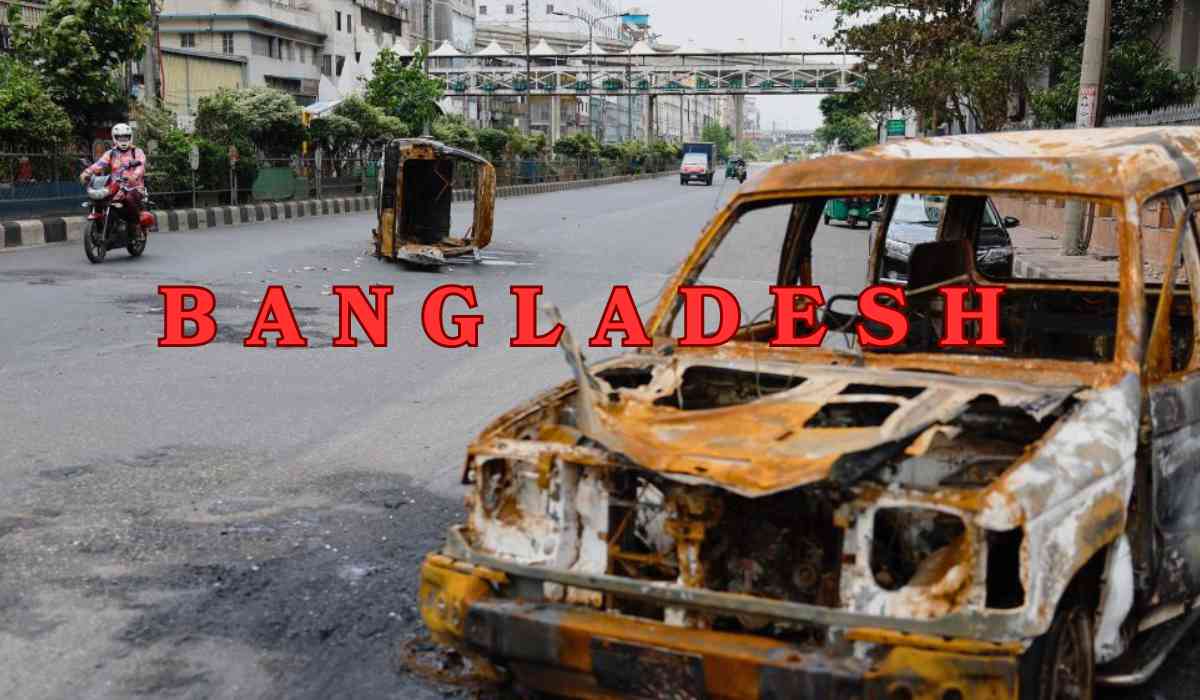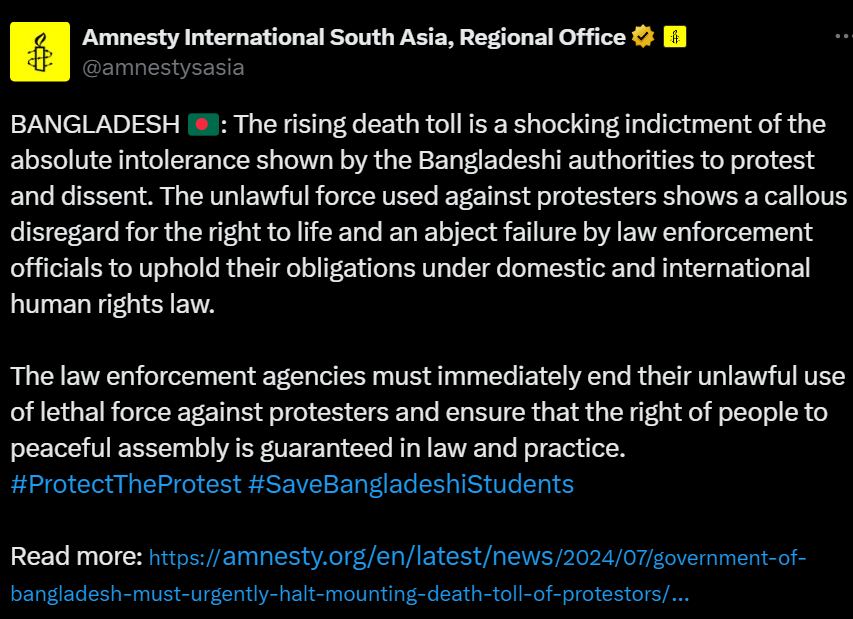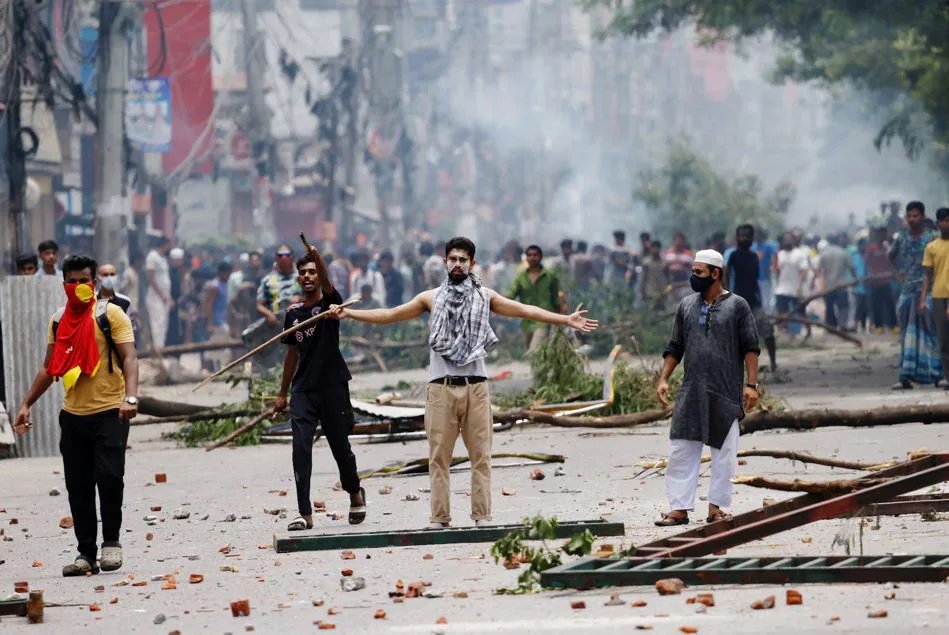Bangladesh has been gripped by violent protests over job quotas, leading to widespread unrest and impacting both local citizens and foreign nationals. Prime Minister Sheikh Hasina has blamed political opponents for the violence, while the situation has affected Indian students and cross-border trade. The protests, which began about two weeks ago, have escalated into calls for the Prime Minister to step down.
1. Violence and protests
- Over 150 people have been killed and 500 arrested in the past two weeks.
- Protests started over government job quotas.
- The Supreme Court reduced job quotas from 30% to 5% for war veterans' relatives.
- Protesters, mostly university students, demand merit-based recruitment.
- Fires spread across the country, including at state broadcaster BTV.
- "Coffin Rally" held at the University of Dhaka
- Demonstrations spread across major cities.
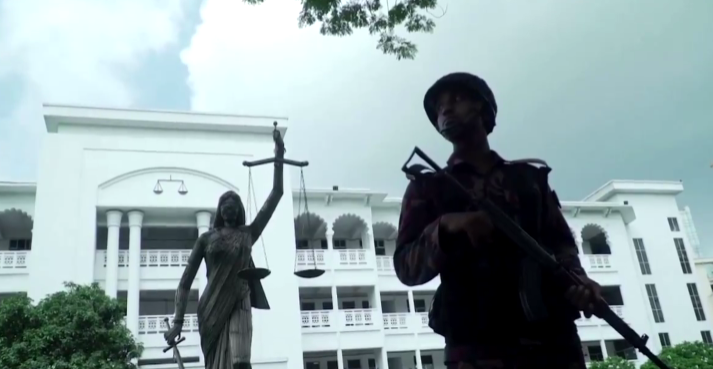
2. The Prime Minister's Response
- Sheikh Hasina blamed opposition parties for the unrest.
- Imposed curfews and internet restrictions
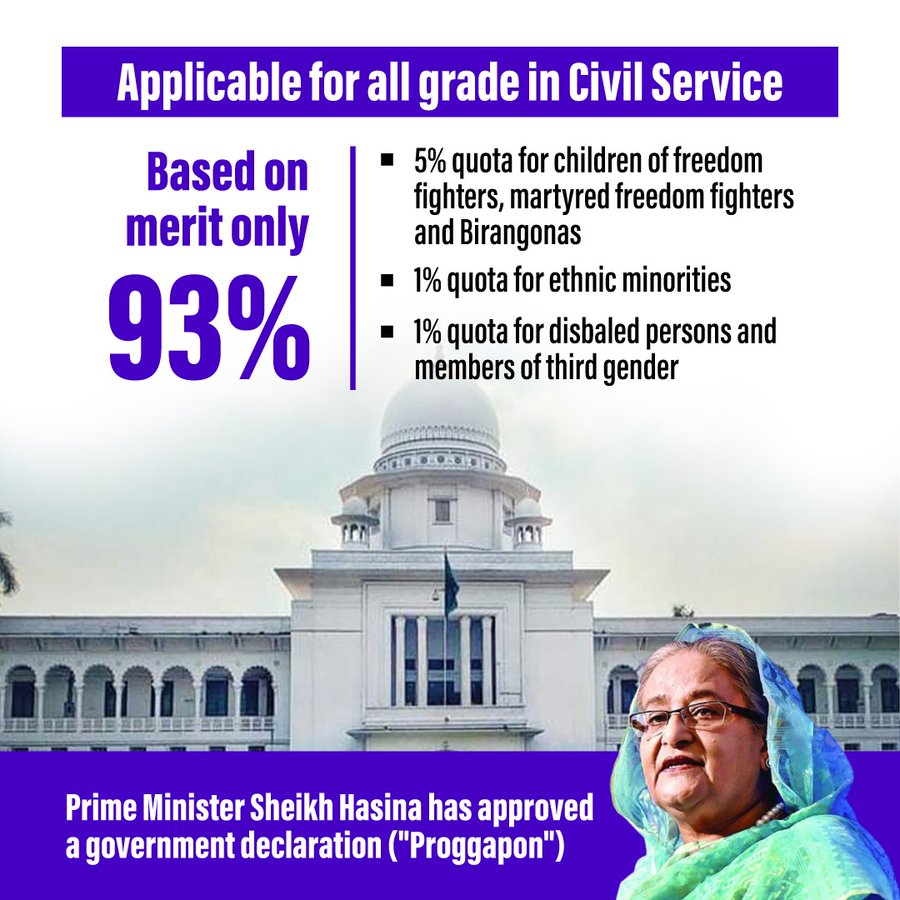
- Called in the military to maintain order.
- Suspended mobile internet and text message services
- Vowed to "suppress these militants and create a better environment."
- Initially, she dismissed protesters' concerns, exacerbating the unrest.
- Made controversial comments about "Razakars," further galvanising protesters.
"I never wanted it," she said on Monday in a meeting with business leaders in the capital Dhaka. "We will lift the curfew whenever the situation gets better."
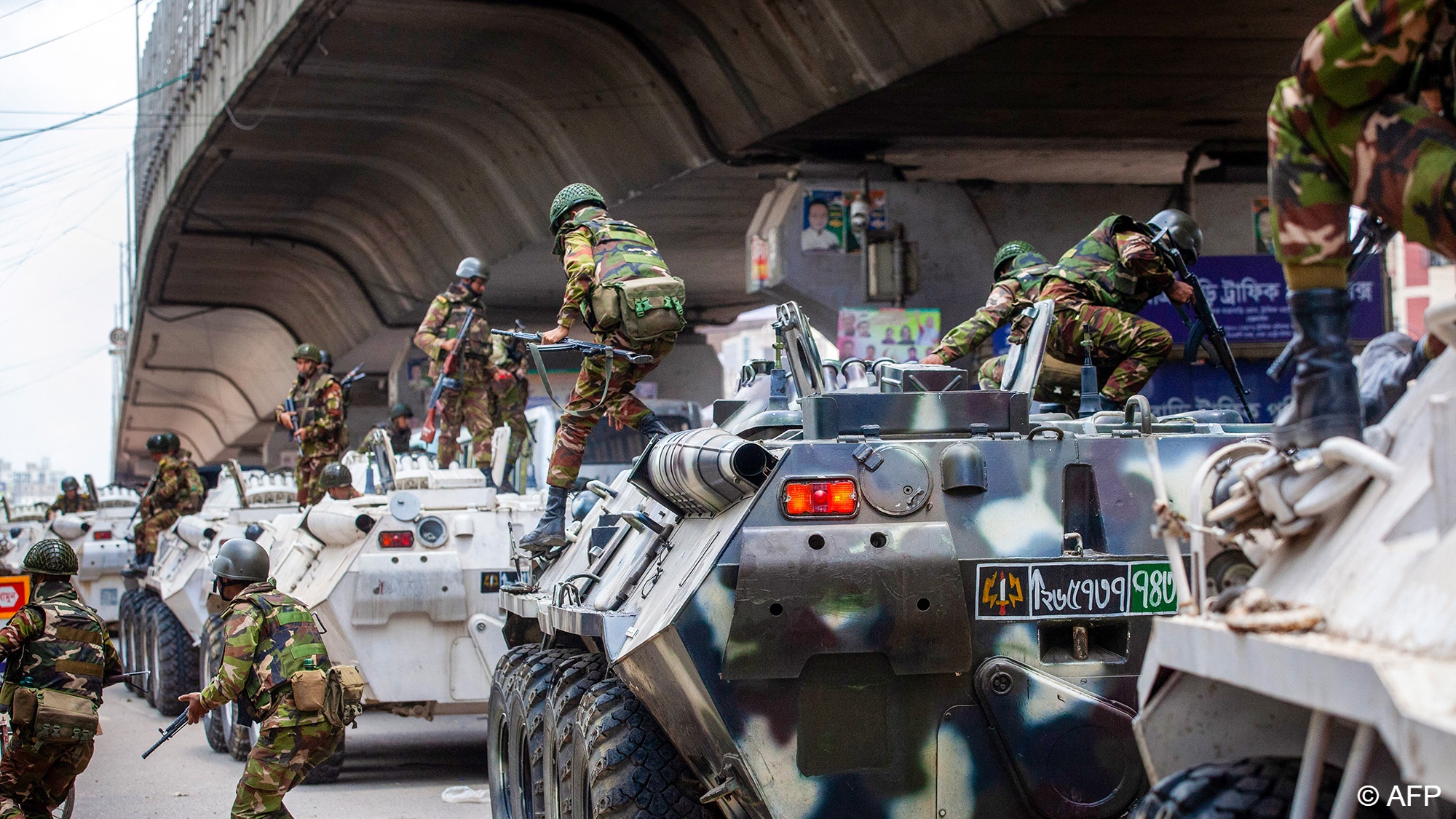
3. Political Context
- Hasina secured his fourth term as prime minister in January 2024.
- Elections boycotted by the main opposition parties
- Critics accuse Hasina of overpoliticizing the liberation war spirit.
- It was viewed as an unprecedented test for Hasina's leadership.
- Hasina (76) is considered one of Asia's most powerful women.
- The government's policies have angered a large section of society.
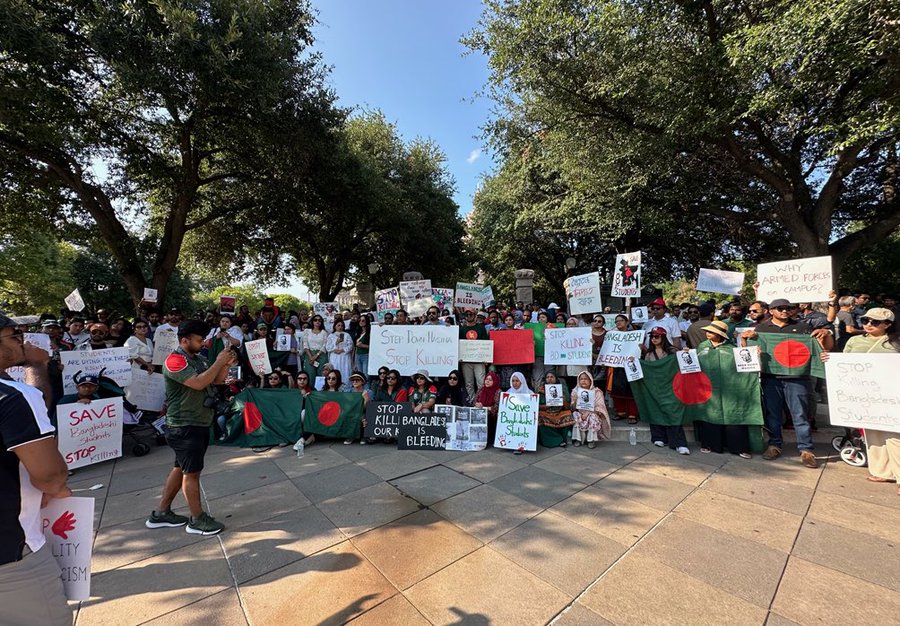
4. Impact on Indian Nationals
- At least 4,500 Indian students returned home.
- The Indian Embassy arranged border transportation.
- Trade at Petrapole Land Port was halted.
- Around 300 Indian goods vehicles are stuck in Bangladesh.
- Students report communication difficulties.
- Uncertainty about class continuation and return dates
_1721728080.png)
5. Economic Impact
- Estimated daily losses of Rs 150 crore at the border
- Annual Petrapole-Benapole border trade: Rs 30,000 crore
- Perishable goods and chemicals are facing delays.
- Business activities stalled due to the internet shutdown.
- Goods vehicles from various Indian states affected
- Concerns about long-term supply chain impacts
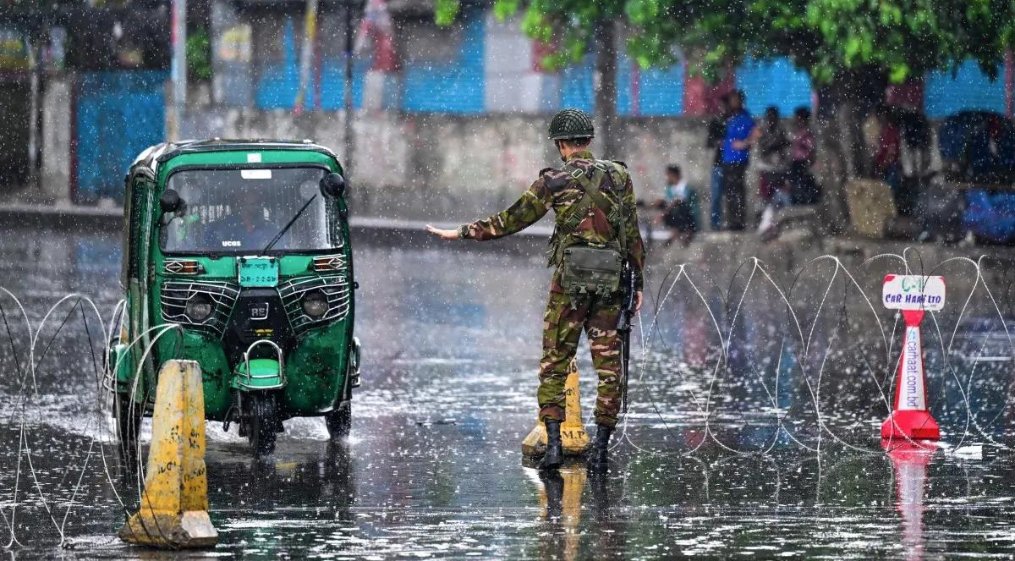
6. Current Situation
- Relative calm was observed, but disruptions continued.
- The curfew was relaxed for four hours on Tuesday.
- Protesters demand the release of leaders and university reopenings.
- Students vow to continue protests.
- Army chief: security situation not fully controlled
- 48-hour deadline set by protesters for government action
- Universities have closed since July 17.
#BreakingNews #Bangladesh: #QuotaMovement Protestors Withdraw "Shutdown" Programme Conditional Upon 4 Demands.
"We are actually waiting for a declaration from the government. We want to see whether declaration includes all grades of government jobs and finally the… pic.twitter.com/J6rLIdFqbE— Awami League (@albd1971) July 22, 2024
7. International Response
- Malaysia evacuated its citizens.
- Other countries are monitoring closely.
- Concerns raised about human rights and democratic processes
8. Historical Context
- Job quota system linked to the 1971 independence war
- Hasina is the daughter of Bangladesh's founding leader.
- The quota system was abolished in 2018 and reinstated in June 2024.
- The term "Razakars" refers to an anti-independence paramilitary force.
- Ongoing debate between historical recognition and meritocracy
For more on Bangladesh news, click : https://Bangladesh Protests Escalate: Telecom Disruptions And Rising Death Toll
Conclusion
The ongoing unrest in Bangladesh has created a complex situation affecting both domestic politics and international relations. As the government works to restore order, the impact on education, trade, and daily life continues to be significant. The protests have evolved from a specific issue of job quotas to broader calls for political change, presenting a major challenge to Prime Minister Hasina's government. The coming days will be crucial in determining whether a resolution can be reached or if the unrest will continue to escalate.
Inputs by Agencies
Image Source: Multiple Agencies
Ⓒ Copyright 2024. All Rights Reserved Powered by Vygr Media.

